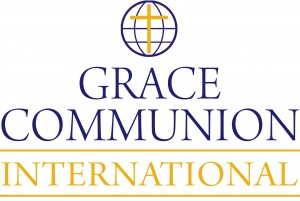Dear Brothers and Sisters in Christ:

 Grace is the first word in our name. We did not choose it because it sounds “religious.” Each word identifies our experience as a fellowship and grace is an integral part of our identity – especially our identity in Christ.
Grace is the first word in our name. We did not choose it because it sounds “religious.” Each word identifies our experience as a fellowship and grace is an integral part of our identity – especially our identity in Christ.
As a denomination, we have always understood grace to be God’s unconditional and unmerited pardon. But we tended to think of it as a component of salvation that needed to be “stirred into the mix” because of our inability to keep the law. We now see God’s grace as much more than that.
Grace is not some sort of passive concept of forgiveness. It is not a principle, a proposition, or a product. Grace is the love and freedom-producing action of God to reconstitute humanity into what the apostles, Peter and Paul, refer to as being made into God’s own people (2 Corinthians 5:17–20; Galatians 6:15; 1 Peter 2:9–10). It is not just a spiritual supplement that God provides because we can’t keep his law, like a whiff of oxygen to help a sick person breathe a bit easier.
Grace is an entirely new atmosphere that transforms us and gives us a new kind of life – life that no amount of law keeping could sustain. Note Paul’s explanation: “For I through the law am dead to the law, that I might live unto God. I am crucified with Christ: nevertheless I live; yet not I, but Christ liveth in me: and the life which I now live in the flesh I live by the faith of the Son of God, who loved me, and gave himself for me” (Galatians 2:19-20 KJV). Grace is the environment that allows us, God’s new creation, to not just survive, but to grow and flourish.
At the risk of over-simplification (a danger inherent in all analogies) we might think of grace as God’s “operating system.” The Father, Son and Holy Spirit have been giving, receiving and sharing love for all eternity. When they extend that sharing of love to us, it is their gift of grace. This grace of God is not the exception to a rule–his rule is a gracious one, all the time, to give us life and to bless us, even if obstacles to our receiving it have to be removed at his own cost.
We see God’s grace most clearly in the person of Jesus, who as Paul said, loved us and gave himself for us. As the early church leader Irenaeus taught, the Son and the Spirit are the “two arms” of the Father lovingly embracing us back to himself. The Gospel of John gives us Jesus’ own encouraging words: “The glory that you have given me I have given them, so that they may be one, as we are one. I in them and you in me, that they may become completely one, so that the world may know that you have sent me and have loved them even as you have loved me” (John 17:22-23 NRSV).
As recipients of the grace of God in Christ, we not only share in the love and life of the Father through his Son in the Spirit, but we also share in the mission of God to the world. That mission is the complete restoration and renewal of all creation in Christ Jesus, through the Spirit, into a state of perfect glory.
God’s grace in the person of Jesus Christ is for all humanity without distinction to race, status or gender. And that is why the vision of Grace Communion International is for “all kinds of churches for all kinds of people in all kinds of places.”
With love, in Christ’s service,
Joseph Tkach



Thank you Joe for your focus on grace in today’s message. Indeed it ought to govern every activity and interpersonal relationship we have, especially in our denomination since the very concept is incorporated into our name. We must never forget that we are Grace Communion International.
Blessings to you for your encouragements and spiritual insight.
Thank you for your weekly encouragement and your focus on God’s wonderful grace